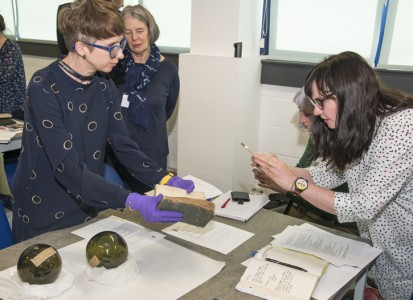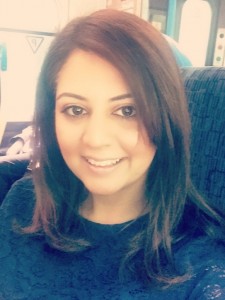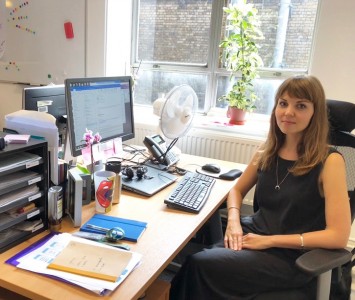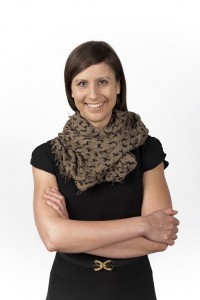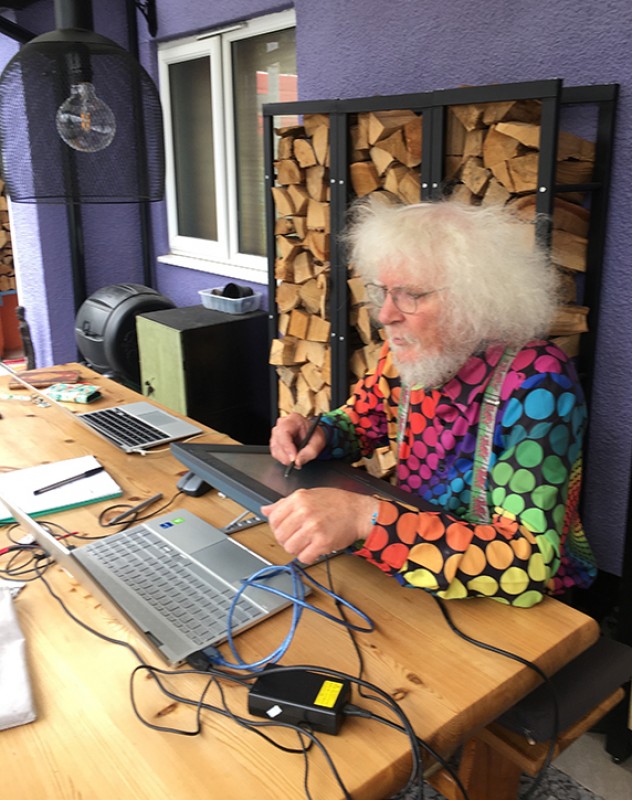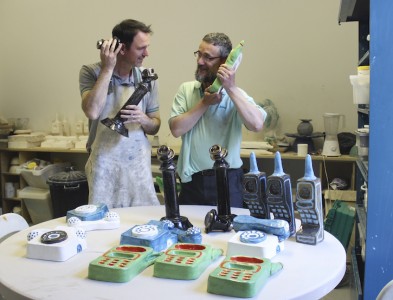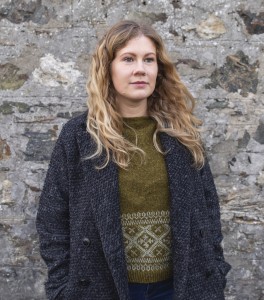For Art UK's 'Being...' series, we take a look at a day in the life of a professional working in the arts, heritage or museum sector, or more broadly within visual culture.
Abi standing next to CreaTable at the start of a workshop session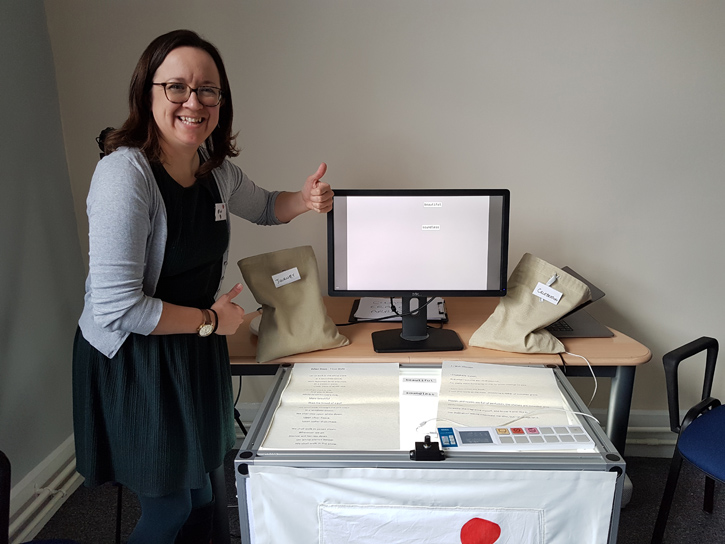
What's your role?
I'm Dr Abi Roper, a co-investigator on the INCA research project at City, University of London. The INCA project aims to investigate, co-design and test out digital content creation and curation tools for people with aphasia. I'm a speech and language researcher and I work alongside researchers in human-computer interaction. We work with people living with aphasia to research and build creative technologies accessible to people with speech and language disabilities. I am a qualified speech and language therapist and have been working with people with aphasia for several years. The INCA research project provides an opportunity to explore creative expression in a way that moves beyond traditional speech and language therapy methods.
What is aphasia?
Aphasia is a language disability caused by damage to the brain. The most common cause of aphasia is stroke – it affects around one-third of all stroke survivors, but it can also be caused by a brain tumour, brain injury or dementia. A person with aphasia may experience ongoing difficulties with finding the words to speak, understanding the spoken language of others, reading and writing. Aphasia does not affect a person's intellect (you might imagine it as being a bit like the experience of being in a country where you do not speak the same language as everyone else), but it can have a very big impact on a person's confidence because of the change in their ability to express themselves and to be understood by others. Speech and language therapists work with people with aphasia to re-train language skills and to develop alternative ways of understanding and being understood. The creative artistic expression we are exploring in the INCA project provides an alternative way for people to say something to others and to share their skills as a communicator.
What's your morning routine and your journey to work?
On the day of a creative workshop, I will arrive at the university to meet my colleague Timothy Neate (a human-computer interaction researcher) and collect the technology and equipment for our workshop session. The two of us then set off on a train to visit members of a specialist aphasia charity, Dyscover, at their weekly group meeting. When we arrive, we organise the technology and equipment ready for the session and enjoy a cup of coffee before the workshop gets underway.
Workshop participants use CreaTable to layer together images, sounds and words
What's a typical morning at work for you?
When we run a workshop, we work together with group members with aphasia to explore and create new digital works using our custom-made creative technologies. One workshop might focus on creating digital art using a web app (Inker) that manipulates existing images. In another workshop, participants might create digital media sequences by layering together images, words and sounds using an interactive surface called CreaTable. At the end of each two-hour workshop, we gather back together as a group to look at the pieces that have been made and to talk about what they mean to each of us. Participants use clearly formatted written forms to record the things they liked and didn't like about each technology and to note how they feel about the work they created.
Zoom
Created by Richard using Inker 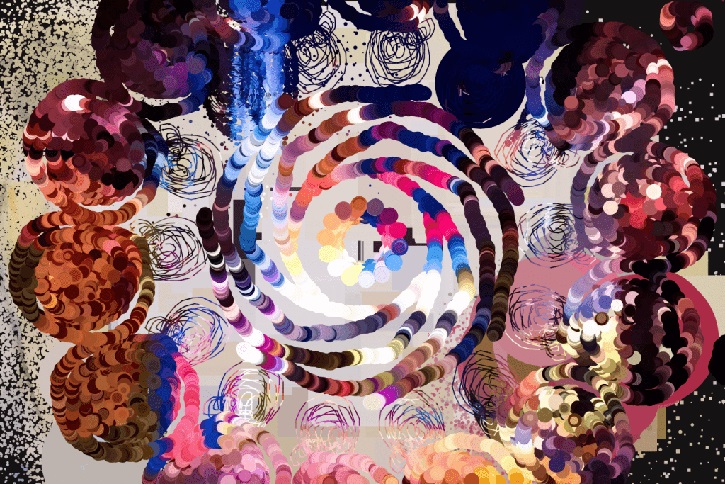
What's for lunch?
Usually, a sandwich grabbed at the train station on the journey across and a cuppa from the tea urn at the centre.
What's a typical afternoon like?
In the afternoon, we will head back to the university with the equipment from the workshop and back up and store any video and digital data from the workshop, as well as writing up the findings from the written forms. We send our research colleagues an update and a photo from the workshop and get planning for the next session!
'Fireworks over...'
Created by Elaine using monoprinting, MakeWrite and CreaTable 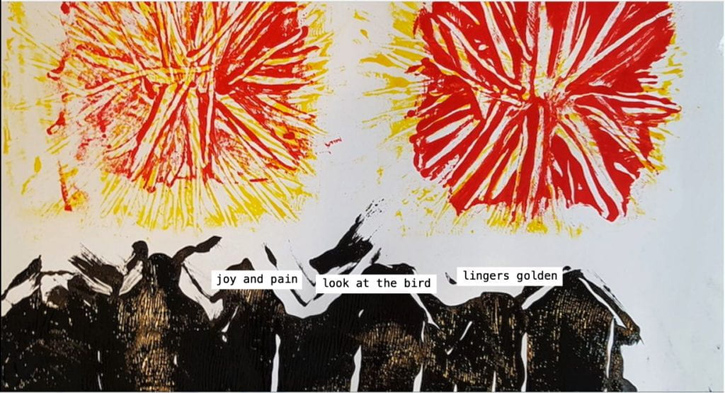
What have you learnt from your role?
Expression is about so much more than spoken language. Aphasia can make everyday communication such as conversation and using technology more difficult than it used to be. But creative and accessible technologies can provide a space for fun, for beauty, for sharing, for disagreement and a chance to share aspects of identity that we might not otherwise be able to express. A recent graduate from an INCA creative workshop series, Brian, reflected: 'The most important thing about the artist is he is true to his feelings. [Within these workshops] we have been all true to ourselves.'
Through my work on this project, I'm delighted to be learning about the role the arts can play in creating spaces for truthful expression.
You can find out more about the INCA project, learn about the INCA technologies, and view an exhibition of works created by artists with aphasia using the INCA technologies.
Dr Abi Roper, Speech and Language Technologist at City, University of London
The INCA project was funded by the Engineering and Physical Sciences Research Council (EPSRC, grant number EP/P025587/1) with supplementary funding from City, University of London. The project has received additional invaluable support and input from the charities Dyscover and the Stroke Association.
Do you work in the arts, heritage or museum sector? Would you be kind enough to share an example of your working day for our 'Being...' series? Please get in touch with Art UK at pitches@artuk.org as we'd love to hear from you.


